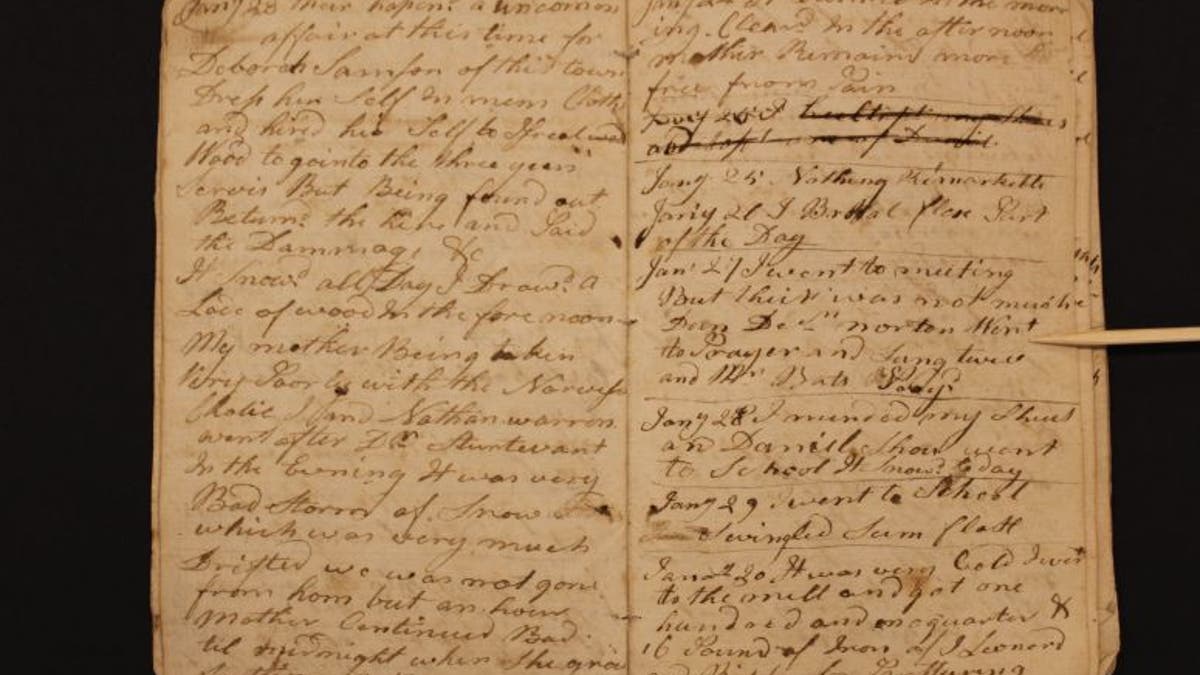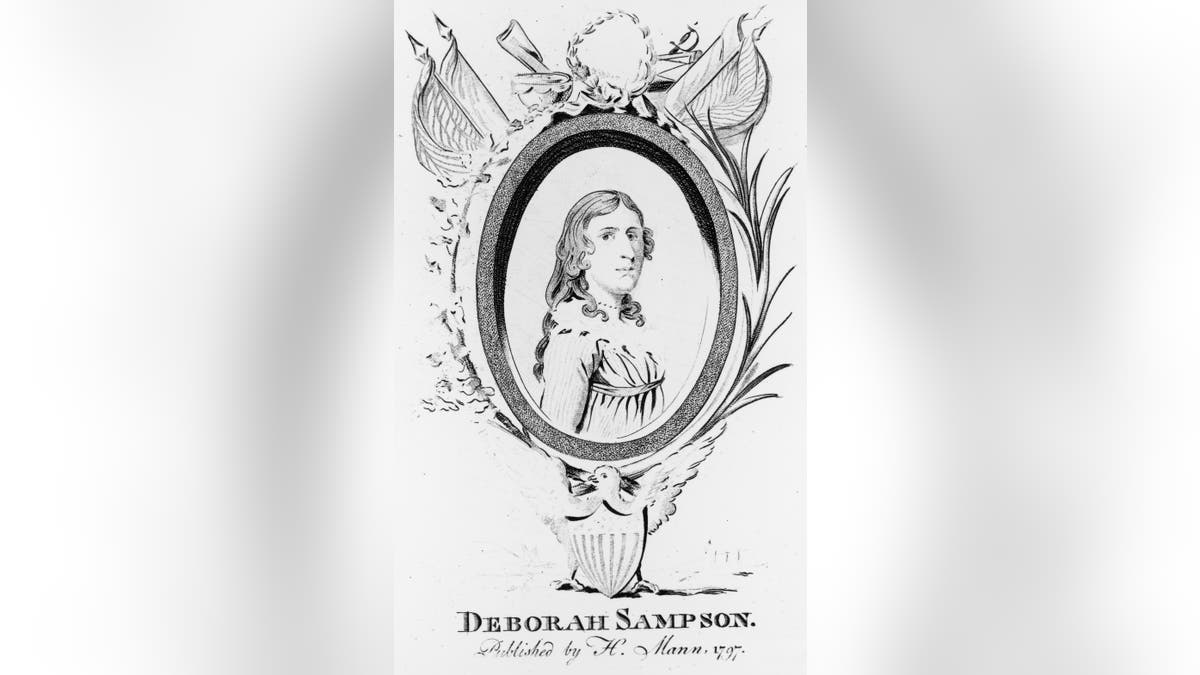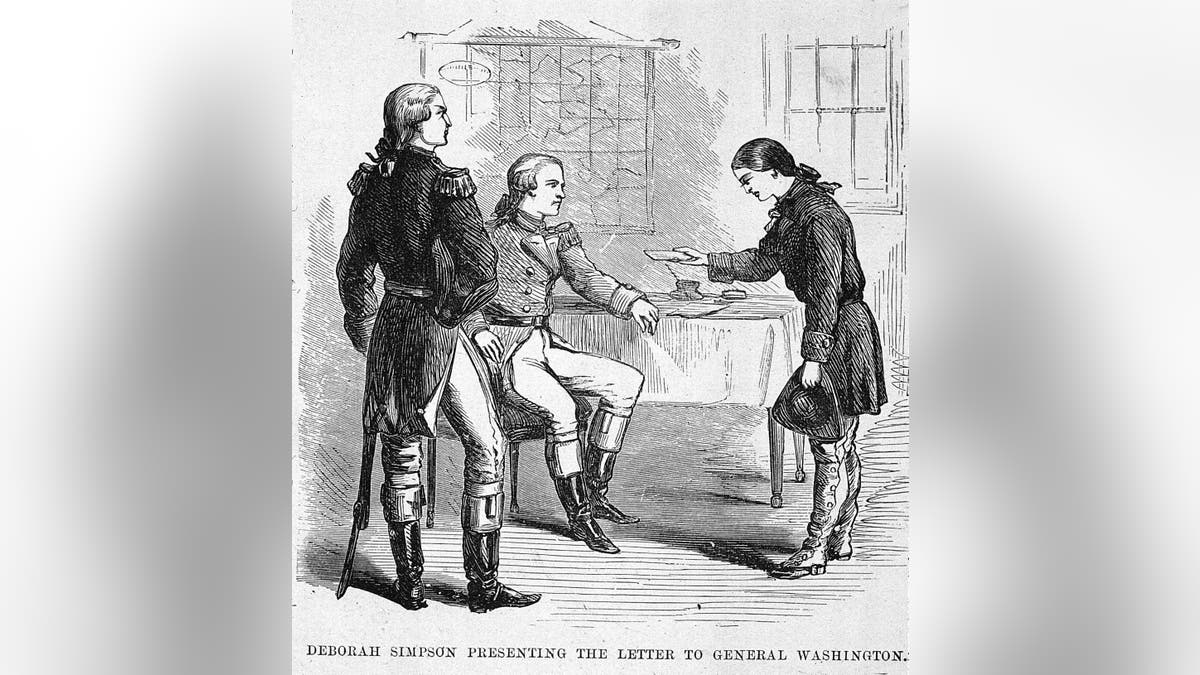2019's Proud American Heroes
This year has already had some surprising and heroic moments for several Americans. Take a look at some proud Americans from 2019.
A remarkable Revolutionary War diary written by a Massachusetts corporal sheds light on Deborah Sampson, who disguised herself as a man to join the Continental Army.
The diary, which features daily entries from March 28, 1781 to Aug. 16, 1782, was written by Abner Weston, detailing his experiences between campaigns, drilling and training. The entry for Jan. 23 1782 also describes Sampson’s first documented attempt to join George Washington’s Army. Sampson famously went on to fight in the Continental Army as “Private Robert Shurtleff,” but fell ill and her identity was discovered. Sampson received an honorable discharge in 1783.
The Museum of the American Revolution in Philadelphia, which will display the diary in 2020, notes that key details of the enlistment attempt were previously unknown.
“This exciting discovery sheds new light on Deborah Sampson’s incredible story and challenges assumptions about how and why she enlisted and how it was perceived by her community,” said Dr. Philip Mead, chief historian and director of curatorial affairs for the museum, in a statement. “Finding puzzle pieces like this allows us to complete a more accurate picture of a person’s life.”

Abner Weston's diary (Museum of the American Revolution)
For reasons that are unclear, Sampson apparently sought to keep the story of this first enlistment attempt secret and it is not mentioned in her memoir.
The Museum of the American Revolution notes that the only other 18th-century source for Sampson’s first enlistment is a 1782 church record from her Baptist congregation, which does not specify the timing of the attempt.
REVOLUTIONARY WAR BRITISH SHIPWRECK FROM THE SIEGE OF YORKTOWN DISCOVERED
Weston, who, like Sampson, was from Middleborough, Mass., provides a “strikingly matter-of-fact account” of her enlistment, according to the Museum. Rather than deeming it a scandal, at least one soldier describes her actions as “uncommon.”

An Engraving of Deborah Sampson, circa 1797. (Photo by Fotosearch/Getty Images)
“His account gives an ordinary soldier’s perspective on a woman breaking the boundaries set by social convention, offering an important glimpse into gender attitudes in 18th-century and Revolutionary New England,” explains the Museum, in its statement.
The diary is one of three known to have been kept by Weston during the Revolutionary War. The other two were submitted by his widow in her application for a war widow’s pension and are now in the National Archives.
“The newly acquired diary appears to have been the one he kept when at home, while the other two record his journey to the army and his life as a soldier on campaign,” says the Museum of the American Revolution.

Circa 1775: American soldier Deborah Sampson (1760 - 1827) delivering a letter to George Washington. (Photo by MPI/Getty Images)
The Museum will showcase the diary in a 2020 exhibit exploring the roles and contributions of women during the American Revolution and how they preceded the women’s rights movements. The exhibit will celebrate the 100th anniversary of the 19th amendment.
Recent discoveries have shone a spotlight on America’s early days. Archaeologists have uncovered more fascinating artifacts from a colonial-era fort in Michigan. A silver brooch and a large piece of creamware were unearthed during a recent archaeological excavation at Colonial Michilimackinac in Mackinaw City, Michigan. The artifacts were found in the remains of a cellar at the site.
Elsewhere, the wreck of what appears to be a British ship destroyed during the siege of Yorktown in 1781 was recently discovered in Virginia.
A letter written by Founding Father Thomas Jefferson that had been lost to historians for over a century recently surfaced. The letter, which is priced at $80,000, is up for sale at Ardmore, Pa.-based historical document dealer Raab Collection.
REMAINS OF US REVOLUTIONARY WAR FRIGATE DISCOVERED OFF UK COAST
In December 2018, the remains of the famous Revolutionary War frigate USS Bonhomme Richard were discovered off the coast of the U.K., more than 200 years after it sank following a naval battle.
CLICK HERE TO GET THE FOX NEWS APP
Just in time for the Fourth of July, an extremely rare 1776 printing of the Declaration of Independence has gone on public display for the first time in over a century at the Museum of the American Revolution.
Follow James Rogers on Twitter @jamesjrogers









































